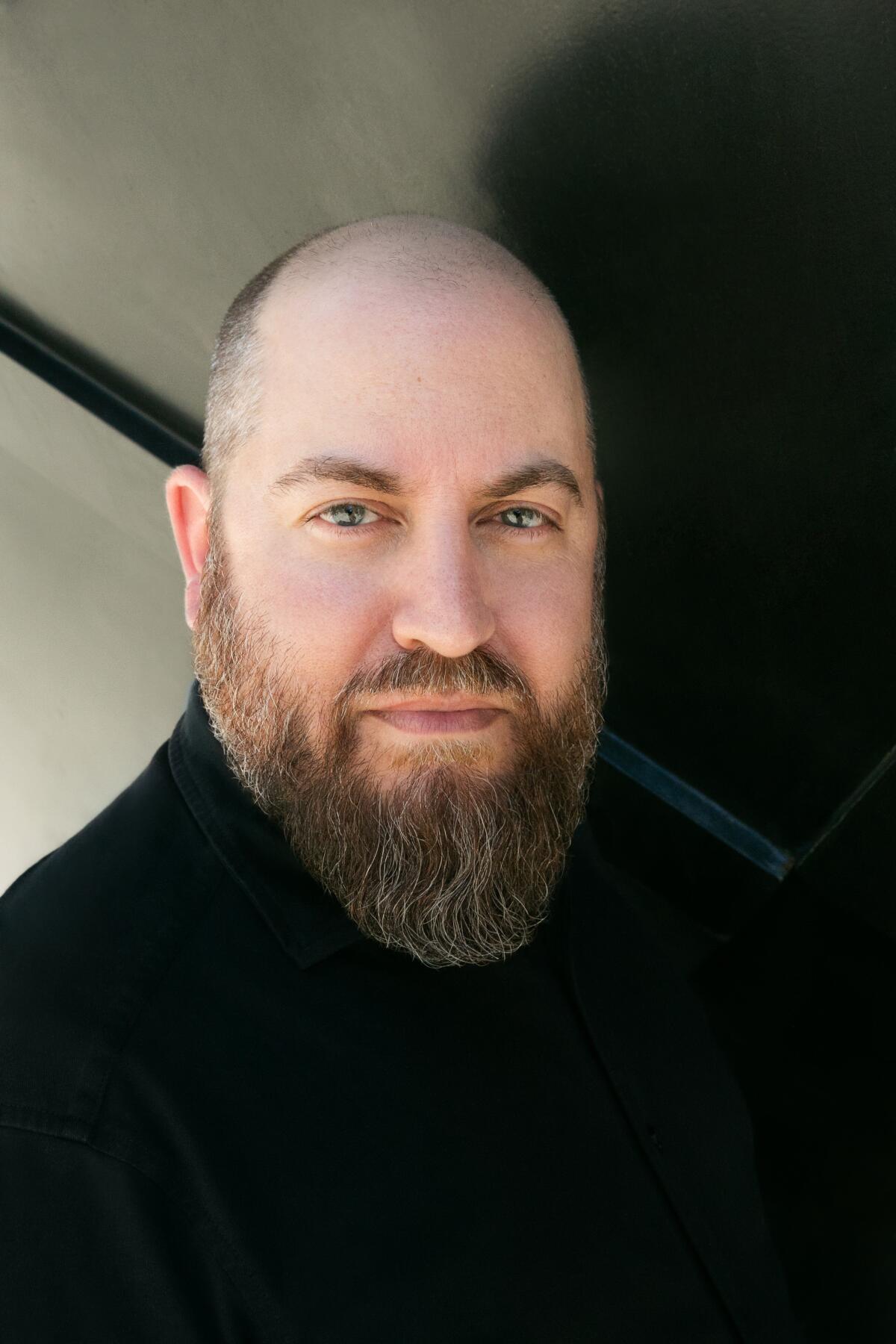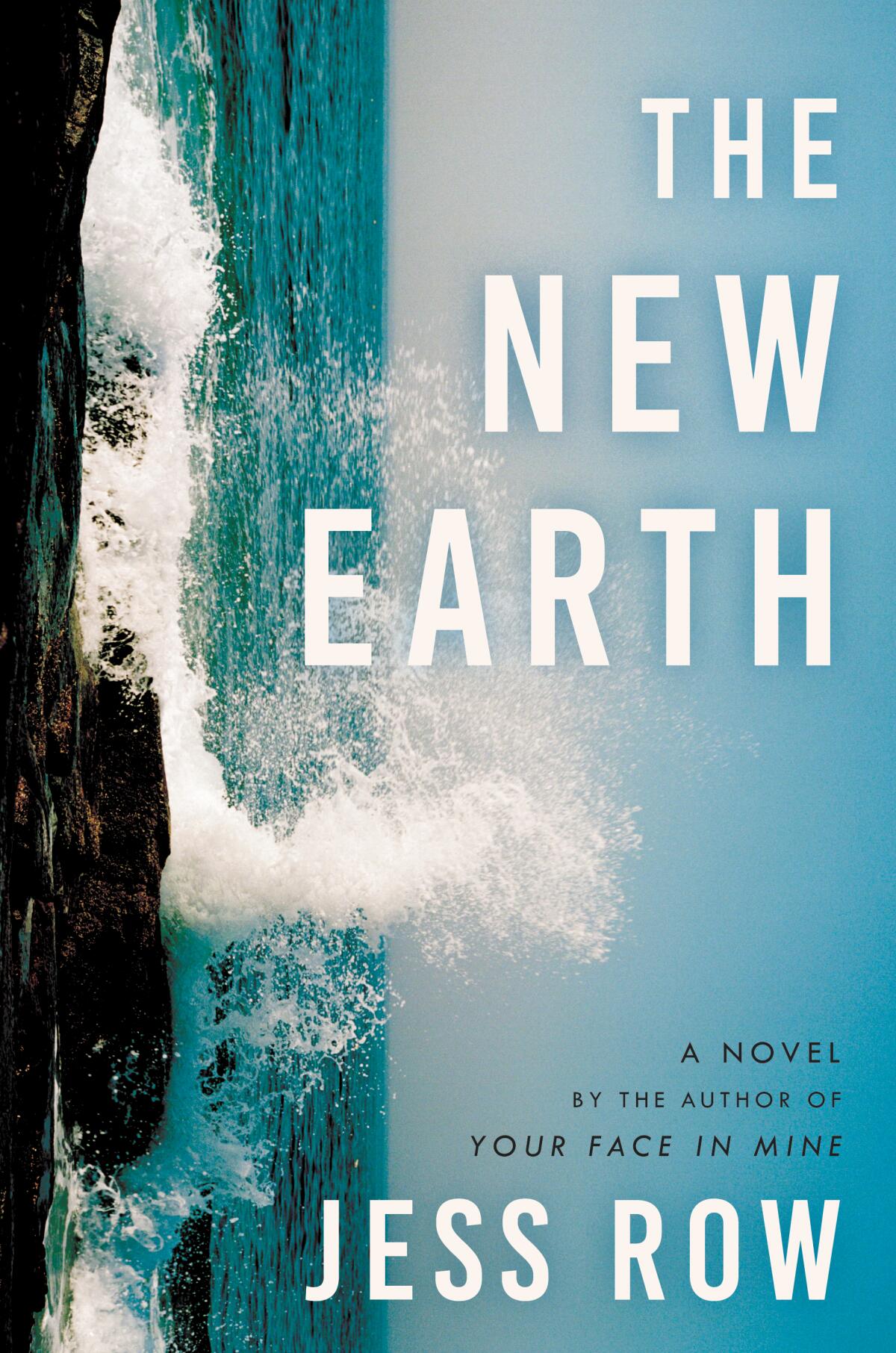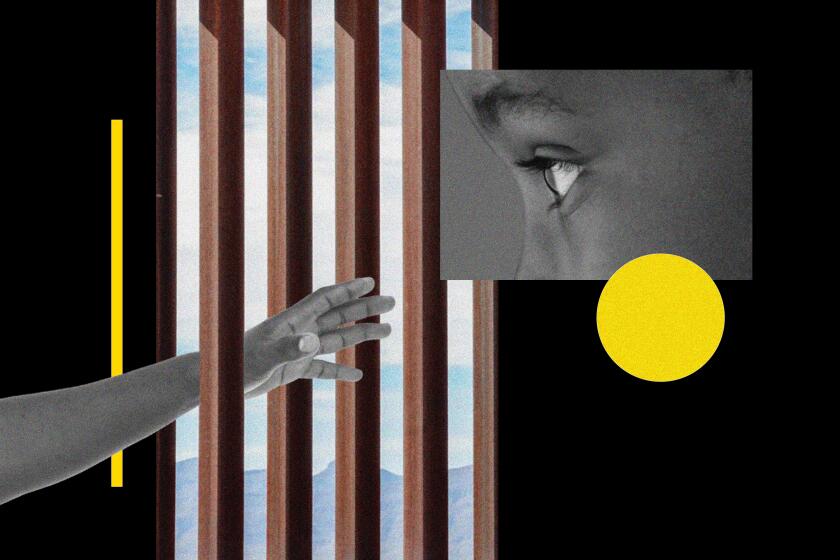A shattered family seeks rebirth in Jess Row’s magnificent new novel, ‘The New Earth’

Review
The New Earth
By Jess Row
Ecco: 592 pages, $33
If you buy books linked on our site, The Times may earn a commission from Bookshop.org, whose fees support independent bookstores.
In Jess Row’s magnificent novel “The New Earth,” out this week, Winter Wilcox stands out as the most grounded of her family. A brilliant bunch, they’re nonetheless going to pieces, and pulling them back together has become Winter’s task — as well as the primary tension of this 600-page novel. Yet Winter too is in crisis.
For starters, she is an immigration lawyer under the chill of early Trump, a chill that pervades the novel’s present action, which is confined to a few turbulent months in 2018. Winter’s Wilcox relations, as well as any friends we meet, are all MAGA bogeymen: multicultural coastal elites. Also they’re at odds with the history that shaped them, picking at scabs from decades back. (The title itself is 18th century, out of the slave trade.) Family memories range from the still of Alaska winters to the heat and terror of the West Bank under intifada. Here and now, we are in New York or New England, the Wilcox stomping grounds, at a moment when Winter must fight tooth and nail for migrants.
One of them, after all, is her fiancé — the father of her unborn child. Zeno is Mexican, solidly employed and deeply in love. Winter’s healthy and they have “enough money.” But then there’s the family. So profound are their schisms, if anything exacerbated by their smarts and successes, that even a daughter’s marriage and a baby on the way might not bring them together.
An investigation in the Atlantic lays out how Trump’s family separation machine was built in secrecy.
The worst divisions go back 15 years, to the murder of the youngest, Winter’s sister Bering. Poetic and precocious, at 21 the girl joined a Palestinian protest and was cut down by an Israeli sniper. Her older brother Patrick withdrew for years into Buddhist monasticism and still lives abroad, sunk in his coding and largely out of touch. Mother Naomi and father Sandy, despite impressive careers and “enough money,” proved terribly, woundingly wrong for each other. These days they live apart, among their festering sores a private Jewish Question: Sandy converted for Naomi, but her actual father — still barely acknowledged — was Black.

In short, Row has no end of material. Better yet, he’s canny enough to link the family breakdown with the failures of their country, its systems dependent — as Winter puts it — on a labor force “analogous, yes, to chattel slavery.”
A line like that may sound academic (it’s critical race theory, actually), but nothing in “The New Earth” lacks for what Zeno terms “human messiness.” The drama begins with Sandy’s grimly serious attempt at suicide, and Naomi not only has a father she had long kept mum about, but also a new secret: a woman lover. The children have their own afflictions, as does the husband-to-be, all shared in a polyphony of severed tongues. Often these appear in different formats or fonts. Zeno’s father records long voice memos full of regret; Patrick makes tortured chat-room confessions. The most lacerating cry from the heart may come on the opening pages, with Bering’s final email, sent as she prepared to face Israeli guns:
When the journey of my life has reached its end,
… may the peaceful and wrathful buddhas
send out the power of their compassion
and clear away the darkness of ignorance.
Deities of many kinds cast their shadows everywhere. Naomi and Sandy may be perfunctory Jews, but their ‘70s commune was a Buddhist retreat. Patrick took a monk’s vows, Bering wished blessings on the world, and Winter’s job is a righteous calling. To choose an Old Testament image, this family wrestles with the Angel. A few pages from Naomi’s perspective even mimic Scripture: “1:16 Come, sea, and swallow the land, I prayed to the LORD.”
From ‘To Kill a Mockingbird’ to ‘The Birth of a Nation,’ stories that flatten usually falter
That prayer asks for something else that haunts this text: namely, destruction. Oblivion has always been an option of the spiritual search, offering liberation from the torments of tribe and identity — not to mention the nasty business of America First. Much as “New Earth” embraces new birth, much as it’s about love, the death wish offers a suspenseful counterpoint. The father’s near-header off a Manhattan balcony is only the first case, and every suicidal impulse reveals connections to figures like Reagan or Netanyahu, in a “political archaeology” that places our entire way of life on that high ledge.
What keeps Sandy from jumping turns out to be one of Row’s cleverest, most ticklish plot devices. The archaeology and mysticism never keep him from springing surprises, including plenty of humor. The handling of the Black relatives impressed me particularly, more subtle than in Row’s first novel, “Your Face in Mine,” more wrenching than in “White Flights,” his essays on race and literature. The reading experience never flags, though I could’ve done with a bit less background — fewer proofs that every unhappy family is unhappy in its own way.
The Tolstoy line also takes us to novels themselves, yet another of the subjects here. The traumas of “The New Earth” repeatedly prompt intrusions concerning long prose narratives themselves: bold forays into metafiction. Such writing has become unfashionable, regarded as a withered branch of postmodernism, but when Row brings up his art form, he enhances the drama.
For instance, as Winter runs her errands and frets over her pregnancy: “She is moving, the novel is moving. It is unrelenting.” The text becomes part of the fix she’s in, unrelenting as a xenophobic president or the baby in her belly. So too, after Winter and her mother make plans to meet, both women reach out for their lovers: “At the same moment, because a novel can do this, Naomi turns to Tilda and says, ‘I need you there for moral support.’”
Ultimately, “The New Earth” is all about resurrection. If Row isn’t pulling a jumper back to safety, he’s reasserting the value of fiction about fiction — or finding fresh ground for the American family novel. The Wilcoxes suffer as many contemporary crises as the Lamberts of Jonathan Franzen, but they prove both more engaged and more moving. The panorama that comes to life around them feels like a masterpiece for our fractured time.
Domini’s latest book is the memoir “The Archeology of a Good Ragù.”
More to Read
Sign up for our Book Club newsletter
Get the latest news, events and more from the Los Angeles Times Book Club, and help us get L.A. reading and talking.
You may occasionally receive promotional content from the Los Angeles Times.









